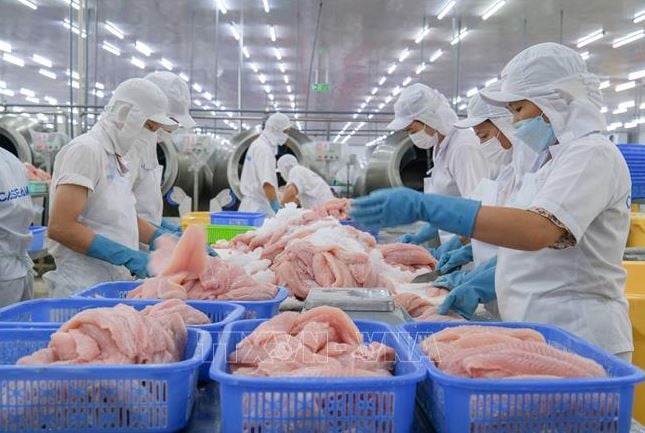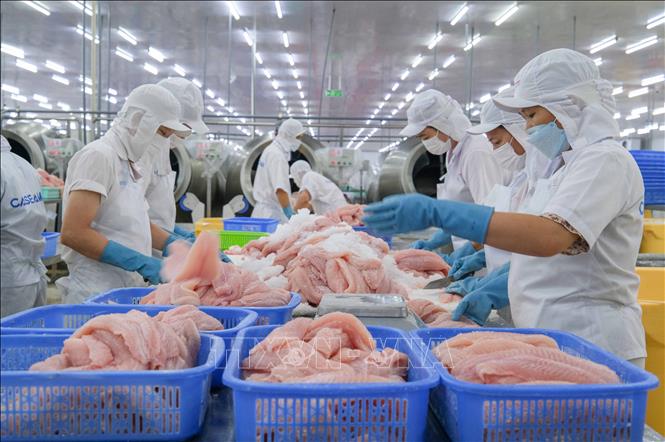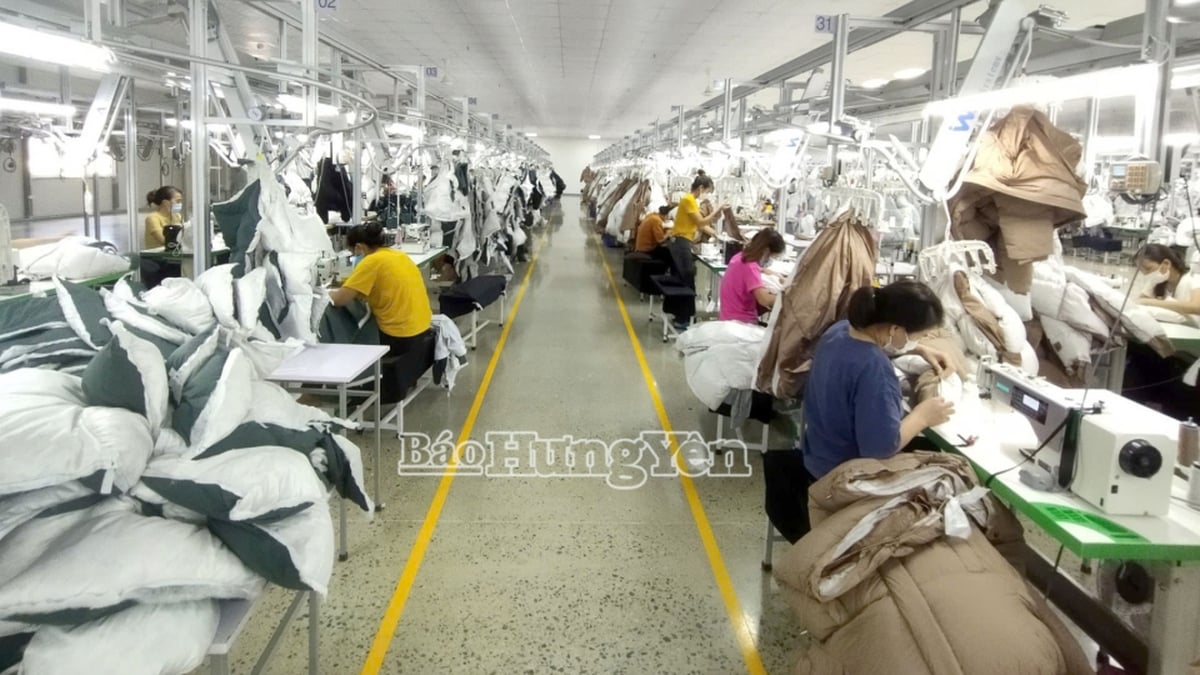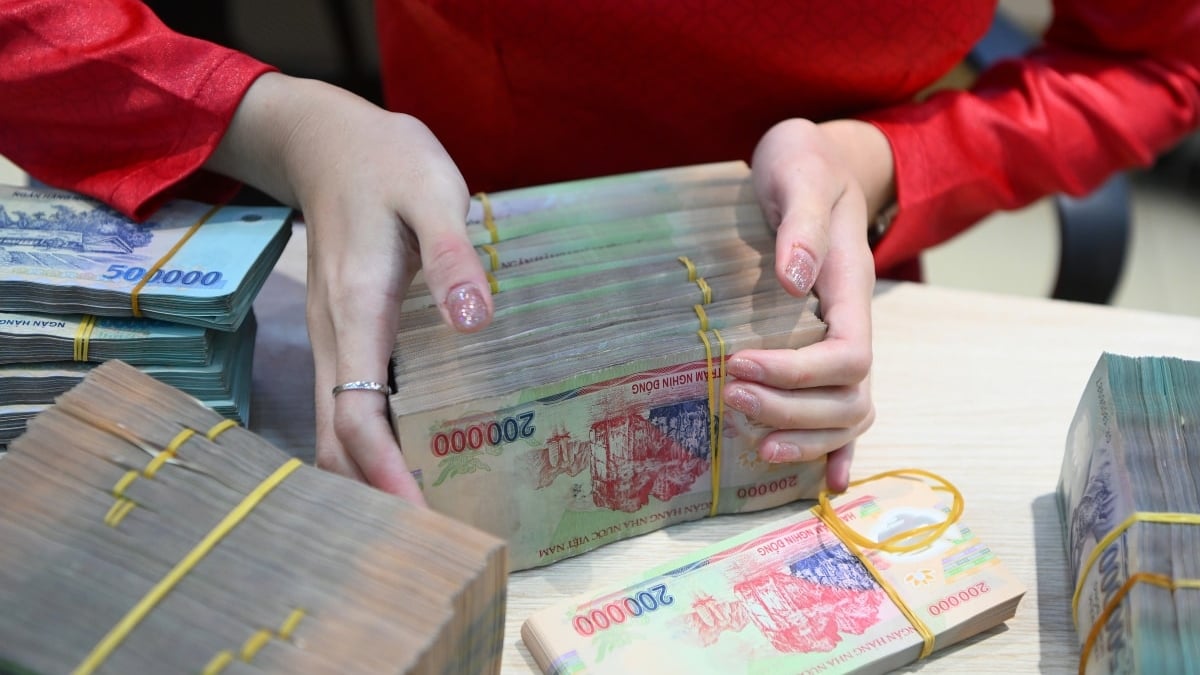In recent times, the Government has focused on reforming and perfecting institutions, removing barriers to business and investment, creating an open and transparent environment that is considered open and friendly by foreign investors. Tin Tuc reporters discussed this issue with Dr. Nguyen Bich Lam, former Director General of the General Statistics Office (GSO).

Sir, how do you assess the economic growth situation and the "health" of businesses in the first 6 months of 2024, especially the unpredictable exchange rate between VND and USD recently?
In the first 6 months of this year, the industrial and construction sector flourished with added value increasing by 7.51%; of which the processing and manufacturing industry increased by 8.67% and the construction industry increased by 7.34%, regaining its role as the growth engine of the economy.
The service sector regained its leading role in growth with a growth rate of 6.64%, 0.31 percentage points higher than in the first 6 months of 2023. However, some service industries that account for a large proportion in this sector such as: Wholesale and retail, repair of automobiles, motorcycles, motorbikes and other motor vehicles; financial, banking and insurance activities had a lower growth rate than in the first 6 months of 2023.
Gross domestic product (GDP) in the first 6 months of 2024 increased by 6.42%, far exceeding the 3.72% increase in the first 6 months of 2023. This is a strong signal of economic recovery in the context of the global economy still having many uncertainties and potential risks.
However, the recovery of domestic and global consumer demand since the beginning of the year has been slow; businesses have difficulty finding consumer markets, and limited financial capacity is the main reason why the number of businesses withdrawing from the market remains high, almost equal to the number of businesses entering the market.
In the first 6 months, 119,612 enterprises entered the market, and 110,316 enterprises withdrew from the market. On average, in the first 6 months of the year, the whole country had 19,935 enterprises entering the market, and at the same time, 18,386 enterprises withdrawing from the market. For the economy, the number of enterprises remained almost unchanged, but production and business capacity declined.
In the first 6 months of 2024, final consumption of households and the government increased by 5.78%; total retail sales of goods and consumer services revenue at comparable prices increased by only 5.7% over the same period last year (the same period in 2023 increased by 8.8%). This reflects the difficulties of households when jobs and incomes are still affected by the slow and weak recovery of the economy; the proportion of households facing financial difficulties is still high, having to tighten spending.
The exchange rate between VND and USD has fluctuated unpredictably. In the last two weeks of June 2024, the USD Index on the international market tended to strengthen, reaching 105.65 points. In addition, the exchange rate may increase further in the third quarter of this year when the trade balance is tilted towards a trade deficit in preparation for production, business and export activities at the end of the year. However, the US Federal Reserve (FED)'s interest rate cut will reduce pressure and increase the exchange rate between VND and USD.
In the context of many difficulties in the world and domestic economy, the Government, the Prime Minister, ministries, branches and localities have had flexible solutions to respond to arising problems, and managed the exchange rate appropriately; with the close support and coordination of the National Assembly. In particular, the dynamism of the business community and business households in overcoming difficulties are the basic factors leading to the positive recovery of Vietnam's economy in the first 6 months of 2024 month by month.
The macro economy is basically stable; the consumer price index in June 2024 increased by 0.17% over the previous month, by 1.4% over December 2023, and by 4.34% over the same period last year. Average inflation in the first 6 months of 2024 was controlled at 4.08%.
The strength of the economy has turned Vietnam into an attractive market for foreign investors, a worthy destination for investment. What is your assessment of this issue?
In recent times, the Government has made efforts to reform and improve institutions, removing barriers to business and investment. In particular, the Government has relaxed regulations and foreign ownership ratios in listed companies, reducing the burden on investors, allowing foreign investors to invest unlimitedly in government bonds.
In the first 6 months of 2024, registered foreign direct investment (FDI) reached nearly 15.19 billion USD, up 13.1% over the same period last year. Disbursed FDI capital reached 10.84 billion USD, up 8.2%, the highest increase over the same period last year in the past 5 years, reflecting that foreign investors have fulfilled their commitments in the Vietnamese market; at the same time reflecting the economy's capacity to absorb and disburse investment capital. A notable point about FDI capital in Vietnam in the first 6 months is the very high number of new projects and newly registered capital. In the first 6 months of this year, compared to the same period last year, there were 1,538 licensed projects, up 18.9% with registered capital reaching 9.54 billion USD, up 46.9%.
This is a good sign, we expect this newly registered capital to be disbursed soon, boosting economic growth in 2024 and the following years.
In your opinion, has Vietnam's promotion of the role of a connected economy promoted export-led growth in the past 6 months?
Over the years, Vietnam has deeply and widely integrated into the region and the world, signed and implemented many free trade agreements with more than 60 partners, covering all continents, bringing Vietnam's level of market access liberalization on par with Singapore.
In terms of international trade and investment, Vietnam has no rivals in terms of partnerships and openness in market access. Vietnam's economy is increasingly asserting and consolidating its important role in the supply chain diversification strategy of multinational corporations.
Import and export activities are a bright spot in Vietnam's economic picture in the first 6 months of 2024 with a trade surplus of 11.63 billion USD, reflecting the role and position of the Vietnamese economy in international trade and the economy's capacity to consolidate and promote export-based growth momentum.

This has contributed to maintaining macroeconomic stability through increasing foreign currency resources in the context of increasing USD value, creating more room for the State Bank of Vietnam (SBV) to stabilize exchange rates, control inflation, and promote growth.
The picture of import and export of goods in the first 6 months of the year has a fresh color, that is, the growth rate of export turnover of goods of the domestic economic sector reached 20.6%, much higher than the growth rate of export turnover of 12.3% of the FDI sector. However, the proportion of export turnover of the domestic economic sector is still low, accounting for only 28.1% of the total export turnover of the whole economy. Import and export of goods still depends on the FDI sector.
Following the achievements and impressions of the previous year, the export turnover of vegetables, fruits and agricultural products increased by 28.2% and rice increased by 32% compared to the same period last year. Some traditional export products that are Vietnam's strengths have ended their decline and returned to high growth, reflecting that the economy's production has shown signs of recovery.
In the first 6 months of 2024, the economy's total investment demand improved compared to the same period last year. Asset accumulation, reflecting the economy's production capacity and development prospects, increased by 6.72%, 5.57 percentage points higher than the same period last year.
Total export and import turnover in the first 6 months of 2024 is estimated at nearly 368.53 billion USD, up 15.7% over the same period last year; notably, in the first 6 months of this year, the average export turnover reached 31.68 billion USD/month. If this export level is maintained in the second half of 2024, the total export turnover of goods this year is estimated at 380.16 billion USD, surpassing the historical mark of 371.82 billion USD in 2022.
It is estimated that the disbursement rate of public investment capital in the first 6 months of this year only reached 28% of the annual plan, 0.63 percentage points lower than the same period last year. The disbursement rate has slowed down due to the fact that the public investment capital plan for 2024 is only 95% of the plan for 2023. Can you tell us some solutions to promote economic growth in the coming time?
Public investment is an important driving force for growth, improving production capacity and competitiveness of the economy. However, the disbursement of public investment capital is still facing many difficulties related to capital allocation; site clearance; policy mechanisms assigning a locality as the competent authority to implement public investment in road traffic projects across many localities; price fluctuations and scarcity of raw materials for construction; a number of officials are afraid of making mistakes and being responsible....
It is estimated that the disbursement rate of public investment capital in the first 6 months of 2024 will reach 28% of the annual plan, 0.63 percentage points lower than the same period last year. The disbursement rate has slowed down due to the fact that the public investment capital plan for 2024 is only 95% of the plan for 2023.
To successfully and comprehensively implement the 2024 Socio-Economic Development Plan, especially the GDP growth target and inflation control, I think the Government needs to focus on implementing a number of groups of solutions such as:
Firstly, the total domestic final consumption demand accounts for over 70% of the economy's GDP. To promote production, create jobs, and create a basis for increasing total domestic consumption demand in the coming time, the Government needs to implement solutions to stimulate consumption through tax and social security policies such as reducing personal income tax; reducing value added tax (VAT) for a longer period, at a rate higher than 2%; reducing air and railway service prices to stimulate domestic tourism and attract foreign tourism; increasing promotional campaigns with the goal of Vietnamese people giving priority to using Vietnamese goods. Implement preferential credit policies to solve the social housing problem for low-income workers, creating peace of mind about accommodation, encouraging work spirit, and improving living standards.
Second, along with promoting public investment and attracting FDI, the Government and localities need to restore and promote investment from the non-state sector through specific mechanisms, policies and solutions in the context of the non-state sector having great limitations in terms of capital; management and integration skills; management capacity and experience; and knowledgeable and skilled human resources. The Government needs to reactivate and unlock private investment resources to become an important growth driver in the long term.
Third, with the important and increasingly strengthened role of our country's economy in the supply chain diversification strategy of multinational corporations, the Government needs to have solutions to enhance the competitiveness of the investment and business environment, develop infrastructure, focus on improving the capacity of transport infrastructure, industrial infrastructure, technology, information and synchronous logistics.
The application of high technology, artificial intelligence, and green development is an inevitable trend, rapidly changing the world economic structure; along with that, the global supply chain is being rearranged. The Government needs to seize the opportunity, urgently build a development strategy for each new growth driver, with comprehensive solutions, synchronized with outstanding policies and mechanisms, one step ahead.
To maximize the advantages of the connected economy, the Government needs to complete legal documents on import and export; implement fiscal and monetary policies to support businesses to increase supply, reduce costs and improve the competitiveness of Vietnamese goods. Strengthen trade promotion, diversify import and export markets; especially import markets to minimize the impact of shocks from these markets.
Thank you very much!
According to Minh Phuong/Tin Tuc Newspaper
Source: https://doanhnghiepvn.vn/kinh-te/hoan-thien-the-che-moi-truong-dau-tu-minh-bach-hut-von-fdi/20240630092543701


































































































Comment (0)